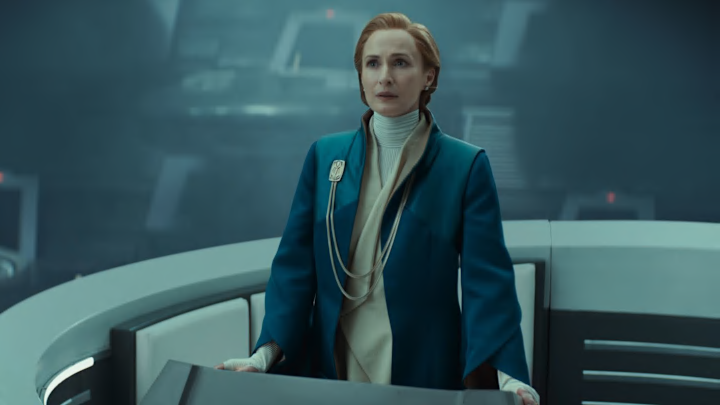Of Andor's many highlights -- especially in the show's second and final season -- its ability to name its terrors stands out among its brightest qualities. We don't just see the Gorman massacre and gather from context clues that it's a genocide. We hear the truth spoken aloud -- by Mon Mothma, naturally.
Series creator Tony Gilroy spoke at the ATX Television Festival about specifically including the word "genocide" in the show, calling the ultimate decision to do so "pretty effortless." Andor is a Disney-owned show, after all, and often uses its reputation as a family-friendly company to exclude certain elements from much of its media. Gilroy thought about it, and then did it -- just as he included the franchise's first f-bomb in Season 1 even though, as he said later in the interview, the powers that be asked him not to do that.
"It’s really sad how many people can find a place to put this word in some place that’s meaningful for them,” he continued regarding genocide. “I’ve been allowed to start using the word ‘fascism’ the last couple weeks. That’s liberating. But it is sad how many people can find a place to put ‘genocide’ into their vocabulary,"
Mon Mothma uses the word in her groundbreaking speech during Season 2, episode 9, "Welcome to the Rebellion." During the speech, she calls out Emperor Palpatine for facilitating the genocide of the Ghorman people. It's the first time we've seen such an event play out on screen so viscerally, even though it's not the first time Star Wars has alluded to or directly referenced similar events.
Andor may be a fictional show set in an equally fake universe, but the events of Season 2 are globally relevant and will likely remain so for quite some time. To call the Ghorman massacre a genocide so publicly is a striking contrast to something many of our politicians refuse to do regarding real-world events in our time. Call it what it is. At that moment, Mothma's only power is her words. She speaks on behalf of all the voices who not only can't, but also those the masses will not listen to. She uses her influence to ignite change -- as so many people have begged those in power to do in our world over the past several years.
Gilroy, similarly, is not a political figure -- but he did have the power to say something important through Andor, and he used it. Audiences are smart. We didn't have to be told Ghorman was a genocide to understand that it was a genocide. But to hear it, to be forced to sit with it and acknowledge it, perhaps even to react to it in ways that ignite change in our own ways -- therein lies the true brilliance of Gilroy's choice. It is not about being too on the nose. It is about not allowing us to look away from the truth -- the failures of our own collective apathy reflected off our television screens, disguised as good storytelling.
